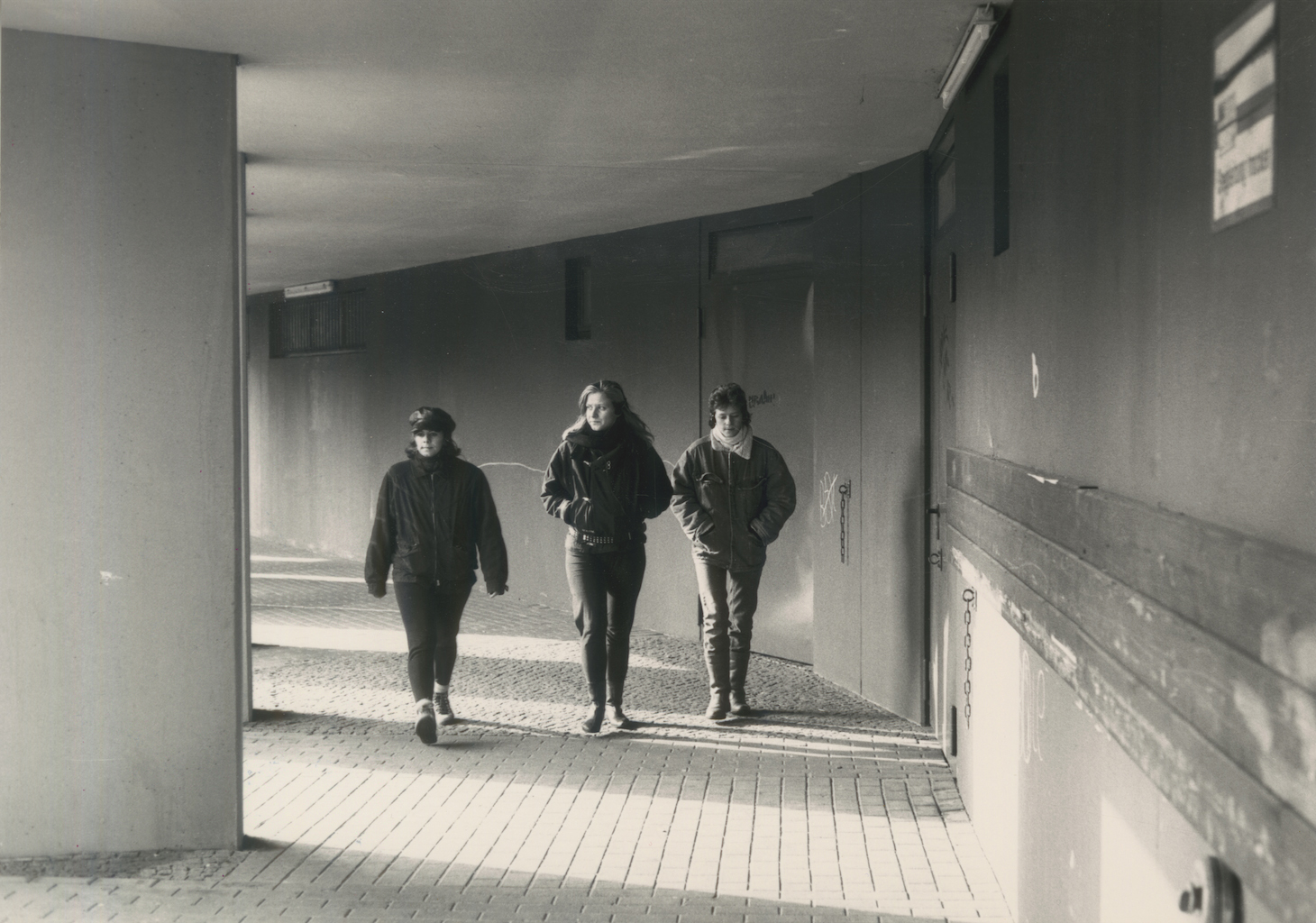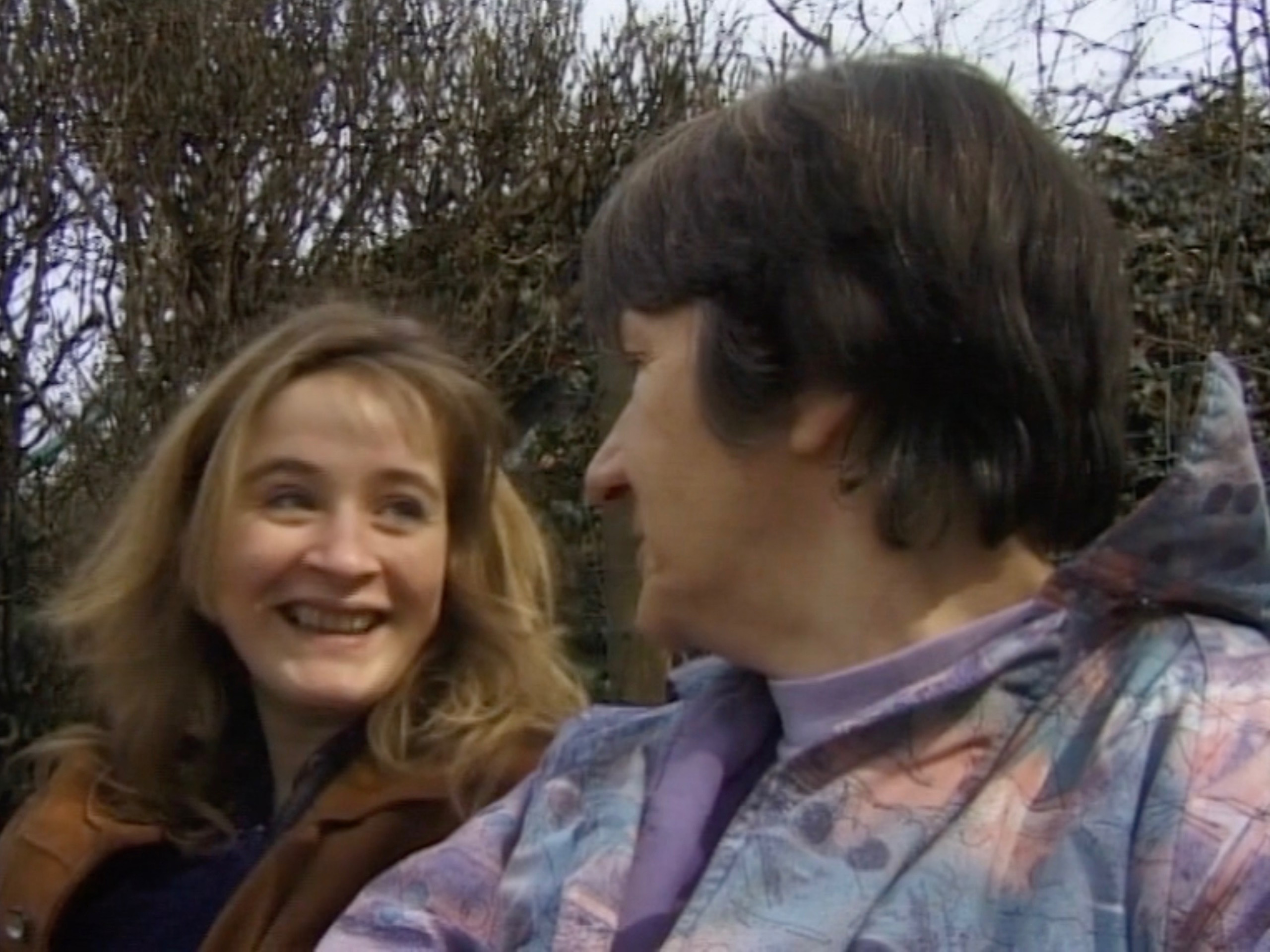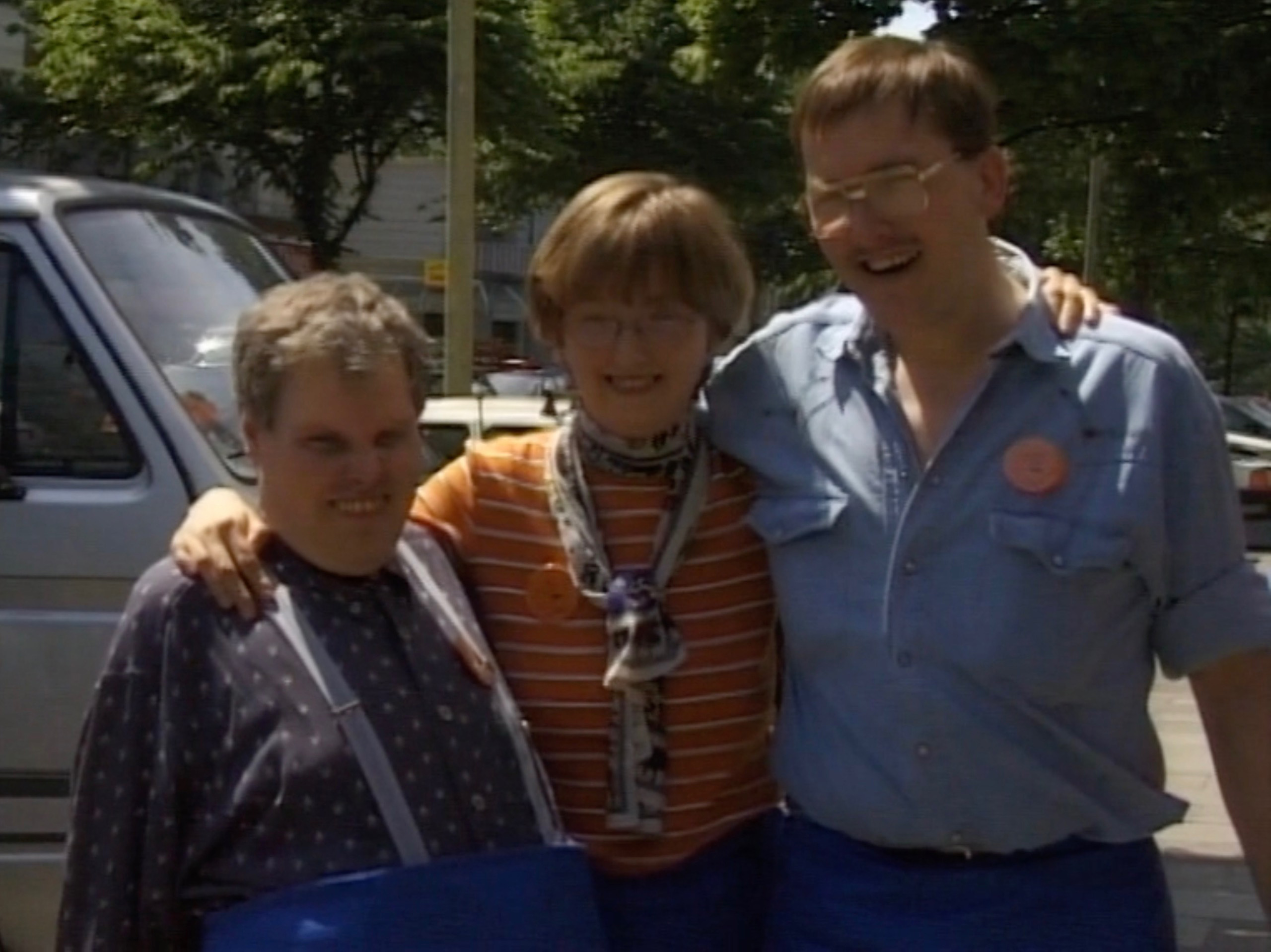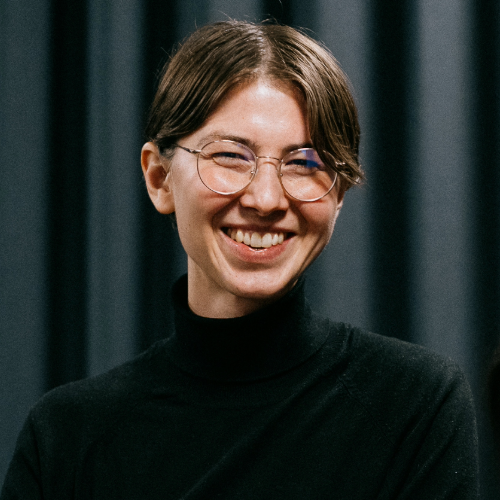FRG 1988 | Director: Margit Eschenbach, Gerda E. Grossmann | Camera: Gisela Tuchtenhagen, Beatrice Weineck | Editing: Susanne Lechner, Gabriela Pötzsch | Sound: Ulrike Hein | Sound mixing: Dietmar Lange | Editor: Beate Veldtrup | Production: hr (Hessischer Rundfunk) | Colour | 16mm | 30 min | german OV with english SUB | Filmsammlung Uni Paderborn
VIOLETTA CLEAN is the name of the first drug addiction therapy project for girls in the Federal Republic of Germany. 10 young women live together here, with the aim of finally getting off of drugs and out of prostitution. The women living there at the time of shooting speak of their experiences in childhood, living and working on the streets and their current outlook on life. They recount their experiences in mixed therapy facilities and detail the crucial ways they differed from their more positive experience of Violetta Clean. As they relate their stories, the unique atmosphere of the facility and the fundamental principles and special aspects of the therapy become clear. […]
The filmmakers name the causes of drug addiction, though they refrain from assigning blame or adding commentary associated with the horrors of said addiction. The visual language and the conducted interviews are calm, open, empathetic, and not moralising. The result is a gritty, realistic portrait of these women and their emerging path of self-reflection. The unobtrusive camerawork by camerawoman Gisela Tuchtenhagen as well as the fact that the entire filming team consisted of women prevent the individuals sharing their stories from being overly exposed, making it possible to depict their lives and personal problems in an unvoyeuristic manner. (Gerda Grossmann, in a brochure accompanying the film)

| Acronyms | |
|---|---|
| amer. | American English |
| b/w | Black and white |
| OV | Original version |
| SUB | Subtitles |
| +SUB | electronic live subtitling (below the image) |
| INT | Intertitles |
| Countries | |
|---|---|
| AT | Austria |
| FRG | Federal Republic of Germany (historic) |
| BLR | Belarus |
| DE | Germany |
| CAN | Canada |
| GDR | German Democratic Republic (historic) |
| EGY | Egypt |
| FR | France |
| GB | Great Britain |
| URY | Uruguay |
| BRA | Brasil |
| SWE | Sweden |
| UKR | Ukraine |
| PL | Poland |
| IDN | Indonesia |
| PRT | Portugal |
| HRV | Croatia |
| ECU | Ecuador |
| HUN | Hungary |
| AUS | Australia |
| IT | Italy |
| MEX | Mexico |
| IND | India |
DE 2005 | Director, camera, editing, sound, production: Gisela Tuchtenhagen | Contribution: Günther Fidorra, Margot Neubert-Marić | Colour | DCP | 71 min | german OV with english SUB
The film revolves around a group of people with diverse handicaps who are helped by the Hamburg non-profit "Insel" to lead largely independent lives. We see them at home, at their workplaces and in the rooms of "Insel", where they meet every Thursday afternoon to drink coffee and talk. A profoundly human film about normal everyday life which is nothing less than a prime example of the director's approach to filmmaking. (Arsenal Institute for Film and Video Art, 2006)


| Acronyms | |
|---|---|
| amer. | American English |
| b/w | Black and white |
| OV | Original version |
| SUB | Subtitles |
| +SUB | electronic live subtitling (below the image) |
| INT | Intertitles |
| Countries | |
|---|---|
| AT | Austria |
| FRG | Federal Republic of Germany (historic) |
| BLR | Belarus |
| DE | Germany |
| CAN | Canada |
| GDR | German Democratic Republic (historic) |
| EGY | Egypt |
| FR | France |
| GB | Great Britain |
| URY | Uruguay |
| BRA | Brasil |
| SWE | Sweden |
| UKR | Ukraine |
| PL | Poland |
| IDN | Indonesia |
| PRT | Portugal |
| HRV | Croatia |
| ECU | Ecuador |
| HUN | Hungary |
| AUS | Australia |
| IT | Italy |
| MEX | Mexico |
| IND | India |
Followed by a conversation with the director. Moderation: Fiona Berg and Borjana Gaković
Born in 1943 in Pomerania, grew up in Schleswig-Holstein. 1966 photography apprenticeship, 1968-72 studies at the Berlin Film Academy dffb. There she studied and learned above all from documentary film director Klaus Wildenhahn, working with him for several years as editor, co-author, co-director and camerawoman. She made her own documentary films and taught at film schools. 1980-1983 training as a nurse, then return to her own film projects, camera work and collaborations with women. It was not all as smooth as it may sound in brief. In 1986 adoption of Christian and Alfredo. Gisela T. has been a member of the Academy of Arts since 1999. She continued to work as a camerawoman and documentary film director until 2021. The principles of Direct Cinema have always remained important to her.

Fiona Berg works as a film scholar and curator, as an author, and as editor of the magazine Filmblatt. She has worked for the Duisburg Film Week, the Zeughauskino cinema and the Free University of Berlin, among others. She is part of the feminist elsewheres group, whose first joint project culminated in a festival at the Arsenal cinema and the DFFB in 2023. Since then, the group has presented its research on feminist film history in programmes and publications. Their research interests focus on the infrastructures of feminist film work and collaborative forms of film education and activism.







